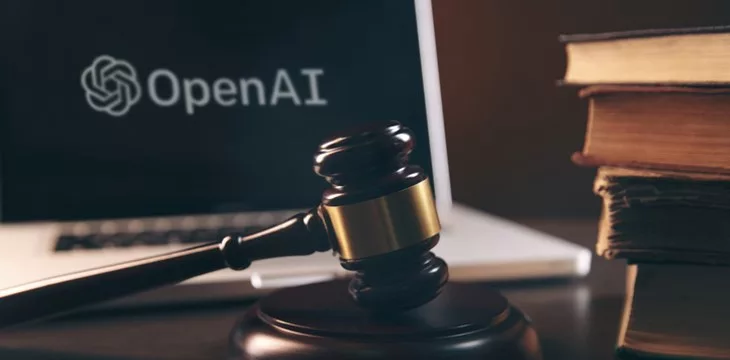|
Getting your Trinity Audio player ready...
|
The Authors Guild in the United States has filed a class action lawsuit against OpenAI for allegedly infringing on the copyrights of fiction writers in the training of its generative artificial intelligence (AI) model, ChatGPT.
In the September 19 court filing, the Authors Guild is seeking damages for the “flagrant and harmful infringement” of copyrights by the AI developers. Plaintiffs named in the suit include John Grisham, George R.R. Martin, Jodi Picoult, and David Baldacci, among other leading fiction writers.
According to the plaintiffs, OpenAI used existing books to train its AI model without seeking the express consent or permission of the copyright owners. The authors state that the lawsuit’s purpose is not to impede the development of AI but to seek redress for the “unpermitted use of the authors’ copyrighted works.”
“These algorithms are at the heart of Defendants’ massive commercial enterprise,” read the filing. “And at the heart of these algorithms is systematic theft on a mass scale.”
In their filing, the Guild alleged that OpenAI may have downloaded authors’ books from pirated ebook sites and used them to train its ChatGPT models. The authors say that OpenAI should have paid a reasonable licensing fee or opted to train their models using works that are already in the public domain.
“Without Plaintiffs’ and the proposed class’ copyrighted works, Defendants would have a vastly different commercial product,” said Rachel Geman, partner with Lieff Cabraser and legal co-counsel to the Guild.
The authors argue that the indiscriminate use of copyrighted material in the training of AI models puts the entire literary sector at risk. Particularly, the Authors Guild noted that the rise of generative AI could adversely affect the earnings of fiction writers, with bad actors leveraging ChatGPT to generate works in the mold of established authors.
ChatGPT has been shown to have the capabilities of emulating sentence structure, voice, and storytelling ability of human authors, given the copious amount of data used to train the model. Although the class action focuses on fiction writers, the Guild stated that a positive outcome in the cases will offer benefits to authors in other genres.
For now, the Authors Guild urges writers to take preemptive steps to protect their work from being used to train AI models by including a notice on the copyright pages of their books. Furthermore, writers are encouraged to use tools to prevent unauthorized crawling and scraping of text by AI developers.
Copyright issues threaten the future of AI
Claims of copyright violations have continued to resonate across the AI ecosystem, with several aggrieved individuals dragging Big Tech firms to court. U.S.-based comedian and writer Sarah Silverman filed a claim against Meta (NASDAQ: META) and OpenAI in July over allegations of copyright violations, with Google (NASDAQ: GOOGL) facing its fair share.
As a way around the raging issues, the U.S. Copyright Office has confirmed the start of a public consultation while pledging to consult with key stakeholders, including AI developers, copyright holders, and consumer groups.
In 2022, the Office launched a study on the impact of non-fungible tokens on intellectual property (IP rights), reaffirming its commitment to explore the effect of innovative technology on copyrights.
In order for artificial intelligence (AI) to work right within the law and thrive in the face of growing challenges, it needs to integrate an enterprise blockchain system that ensures data input quality and ownership—allowing it to keep data safe while also guaranteeing the immutability of data. Check out CoinGeek’s coverage on this emerging tech to learn more why Enterprise blockchain will be the backbone of AI.
Watch: Blockchain can bring accountability to AI

 02-14-2026
02-14-2026 




